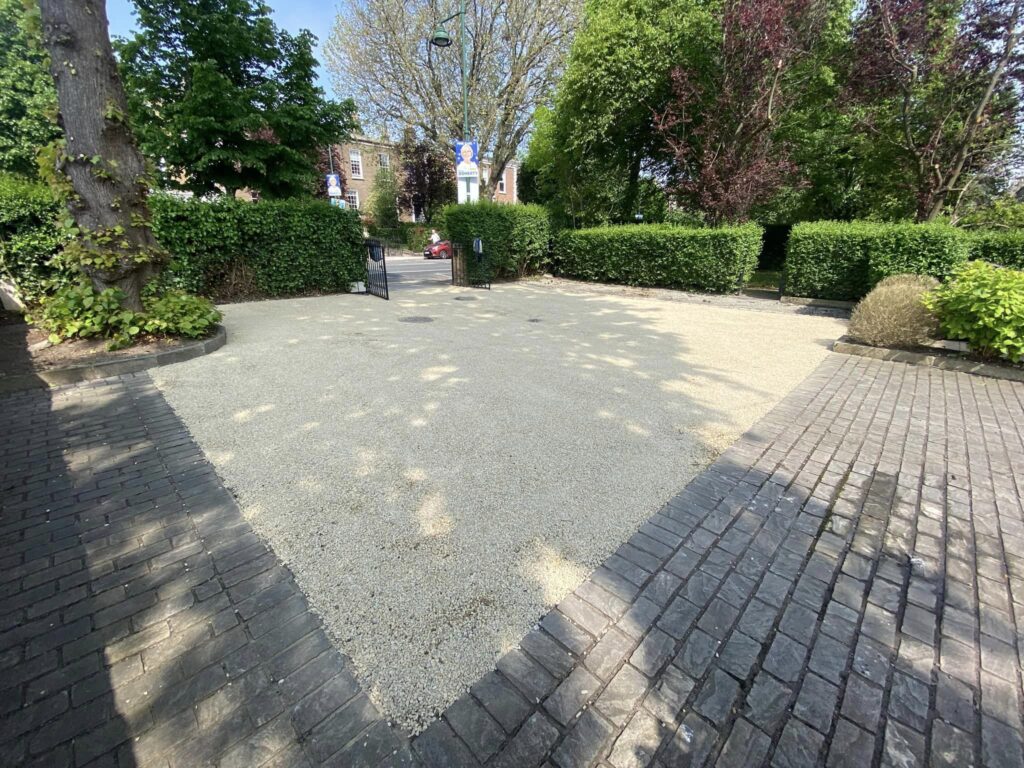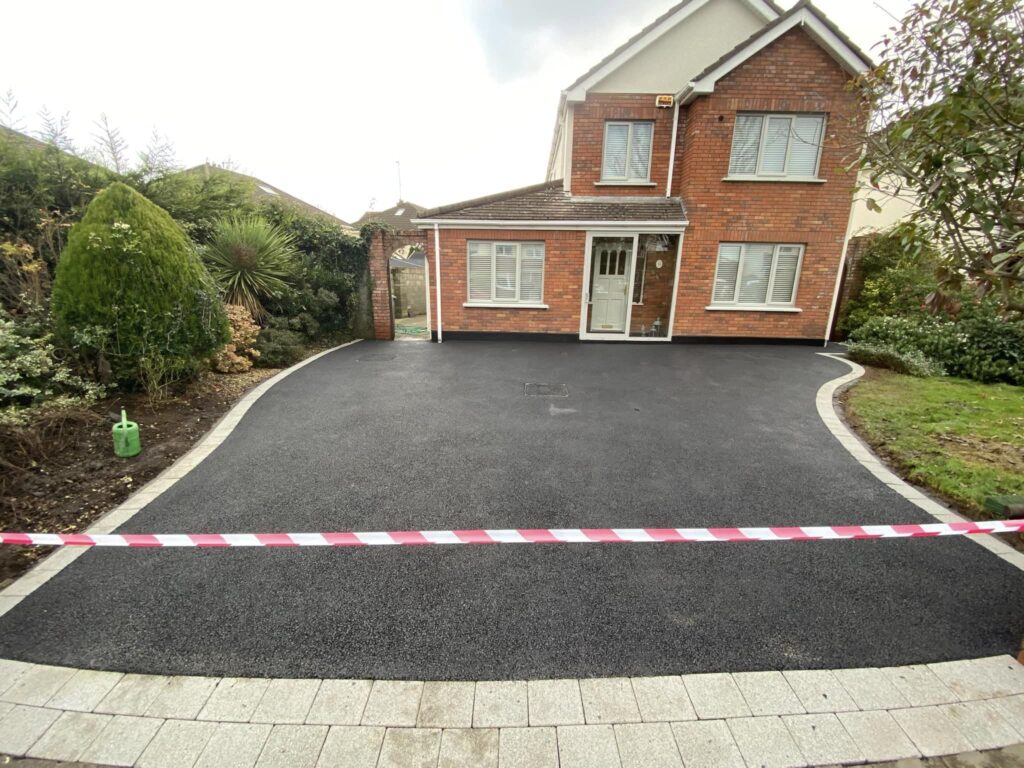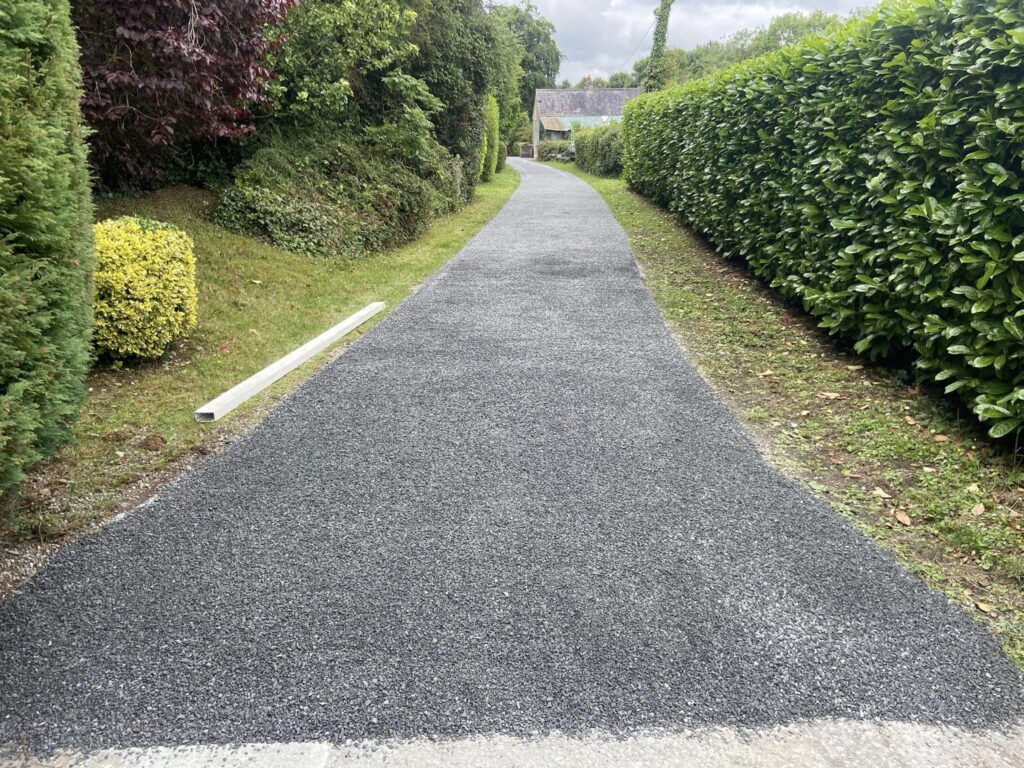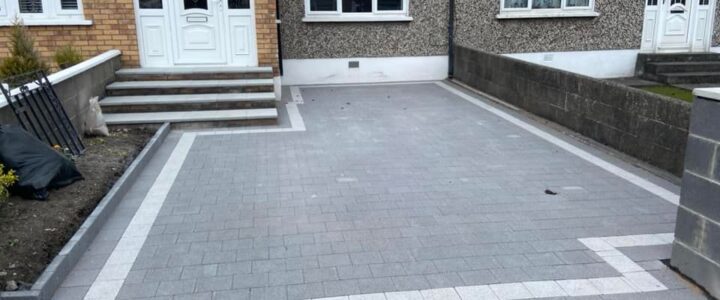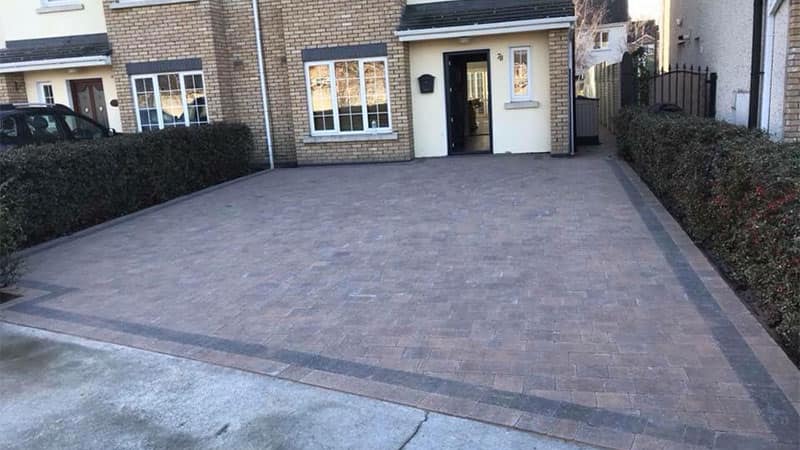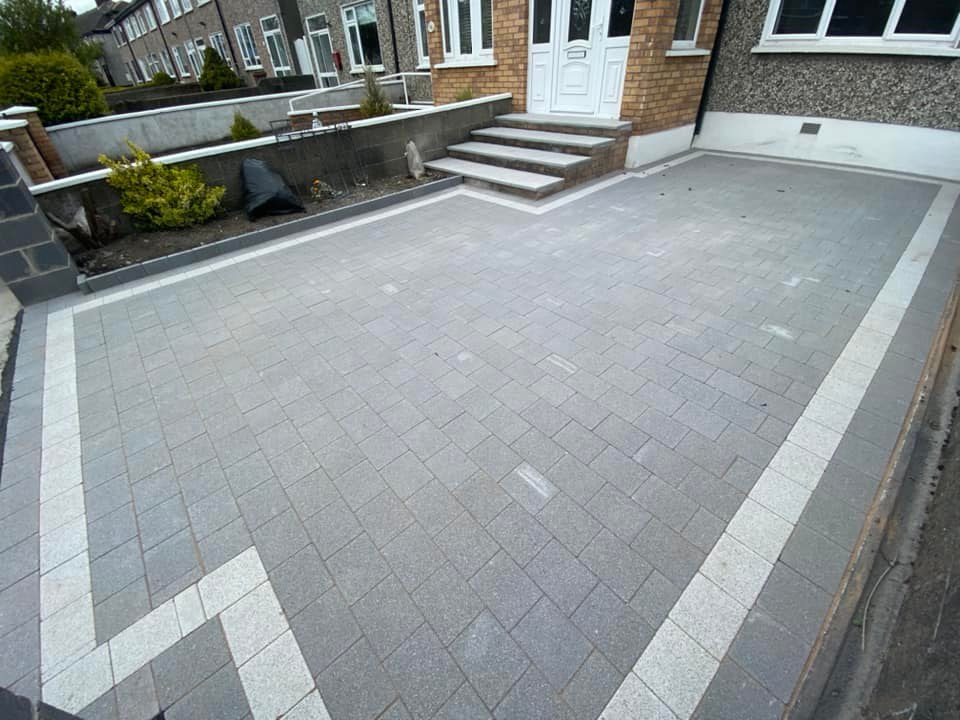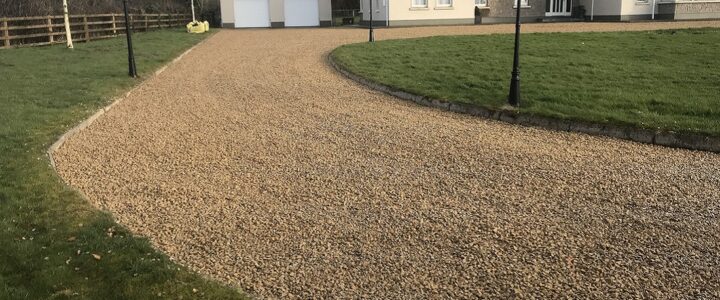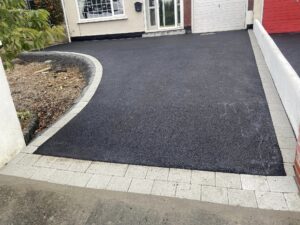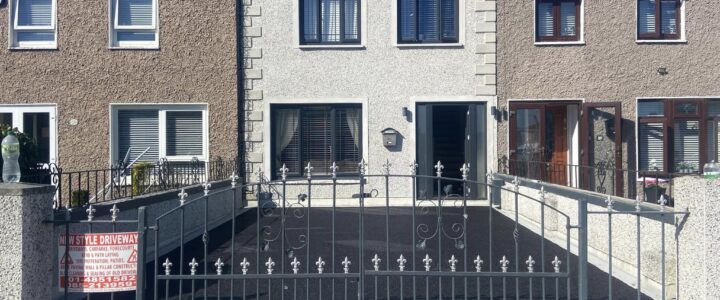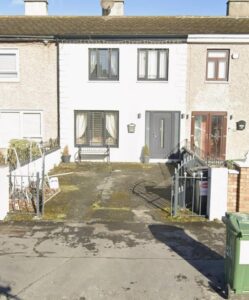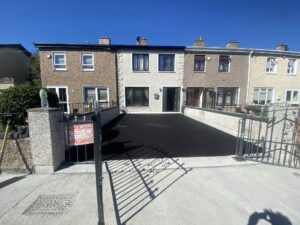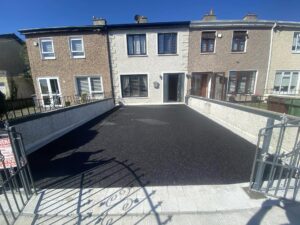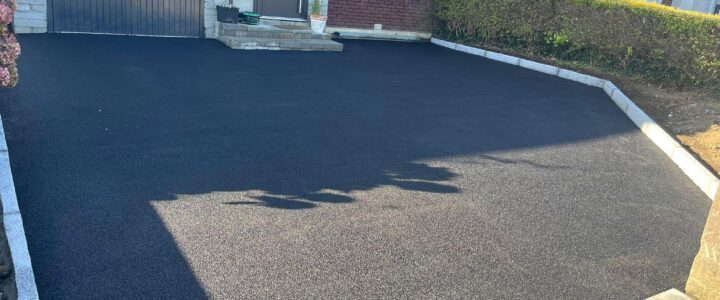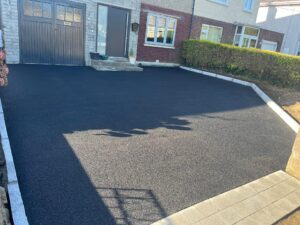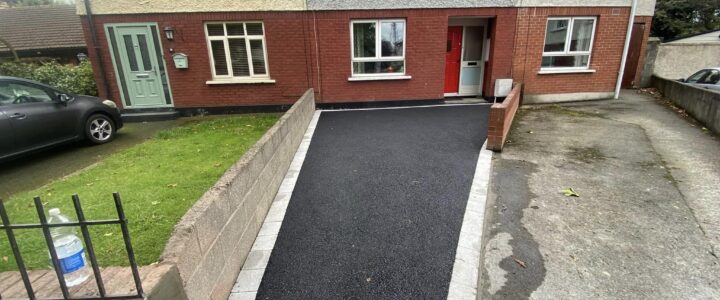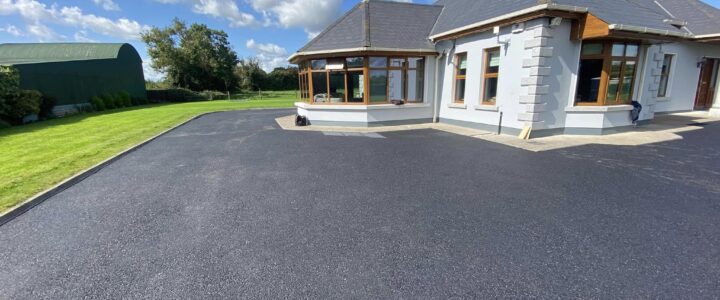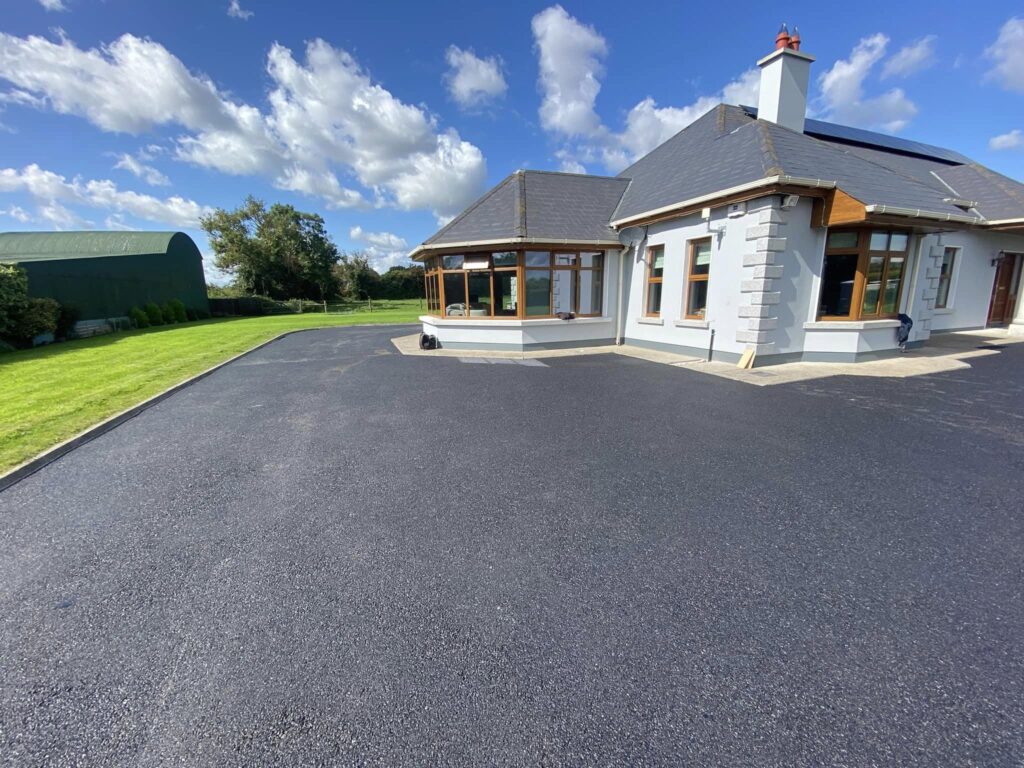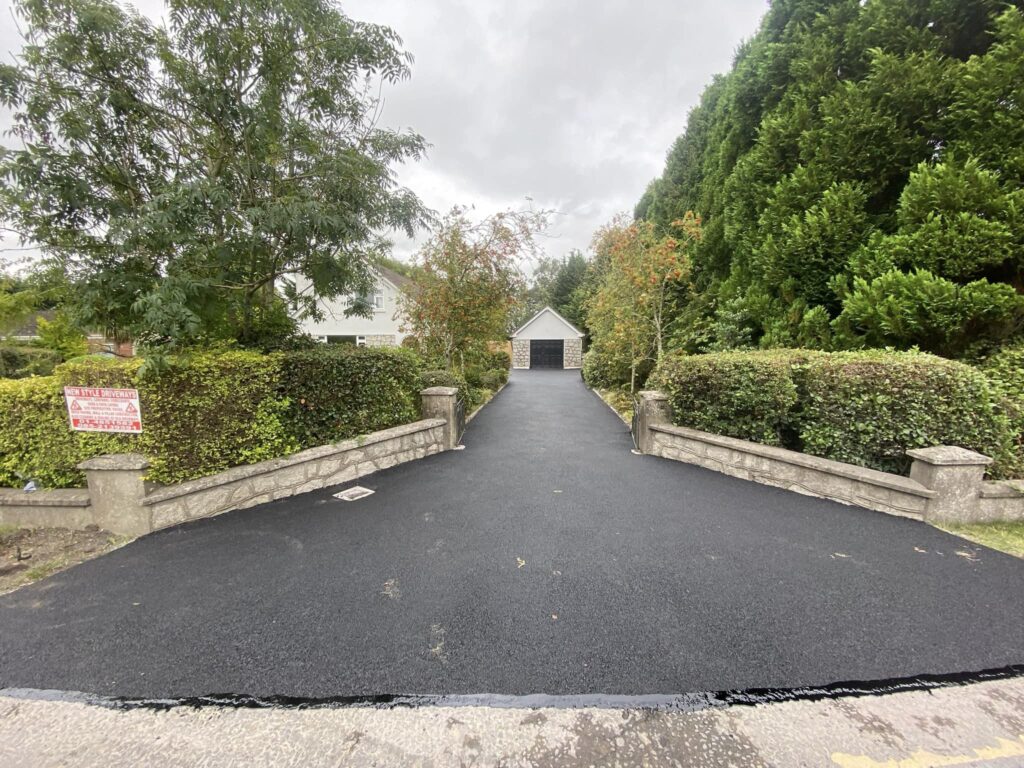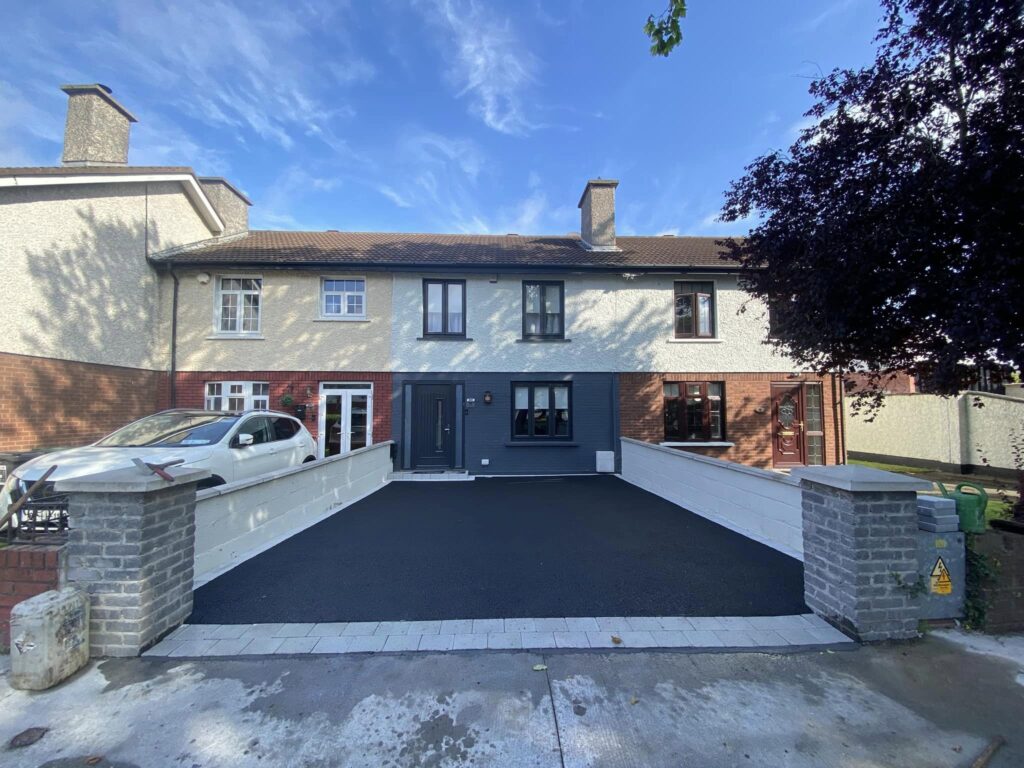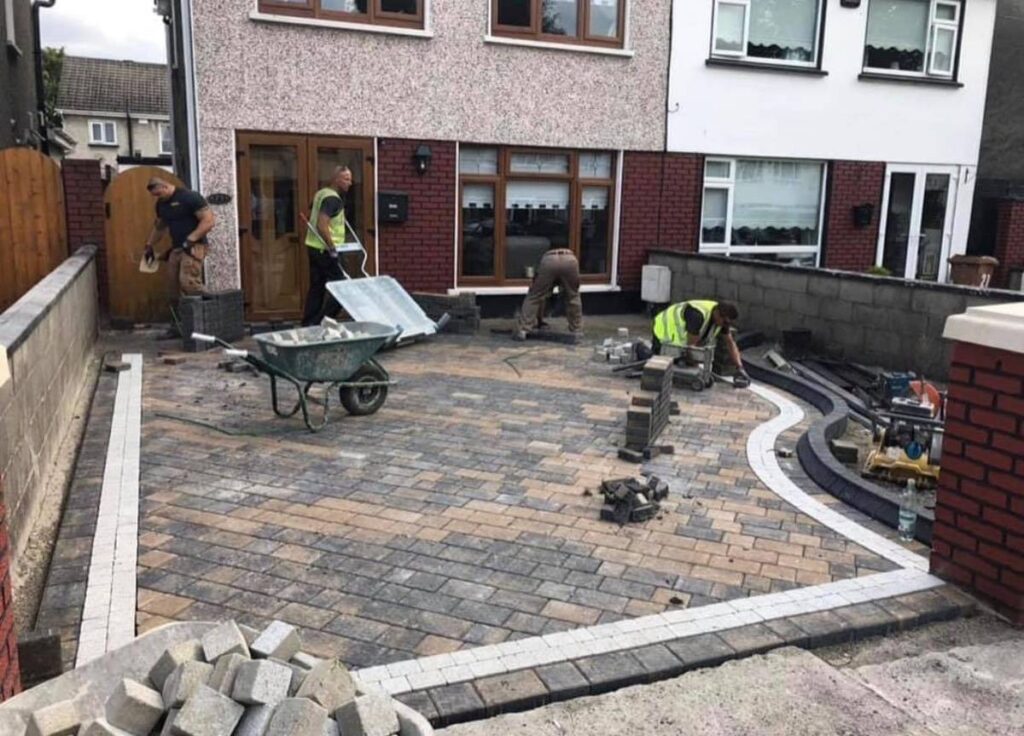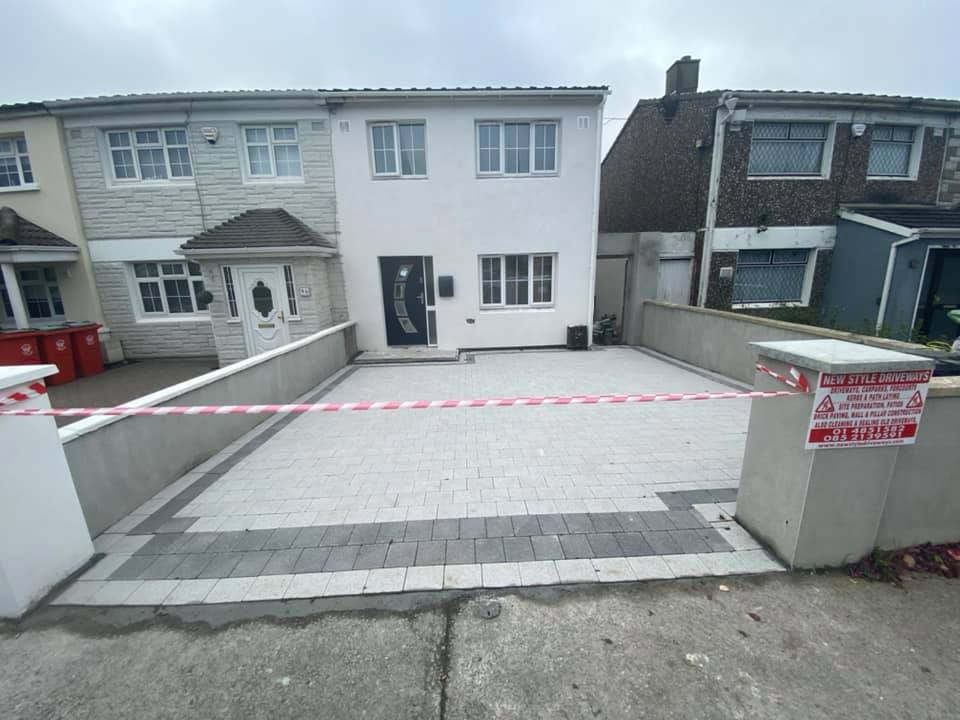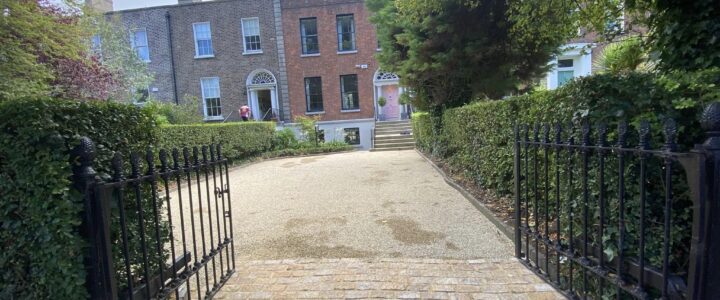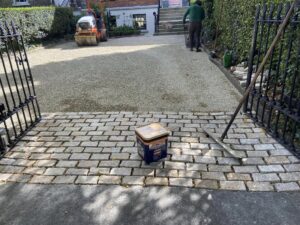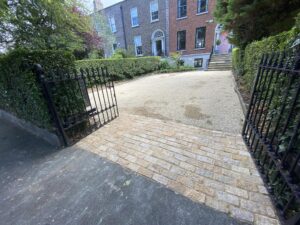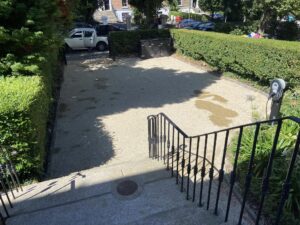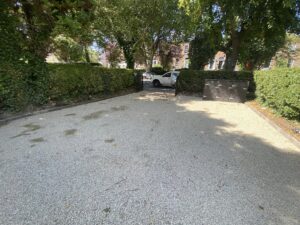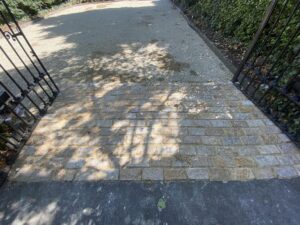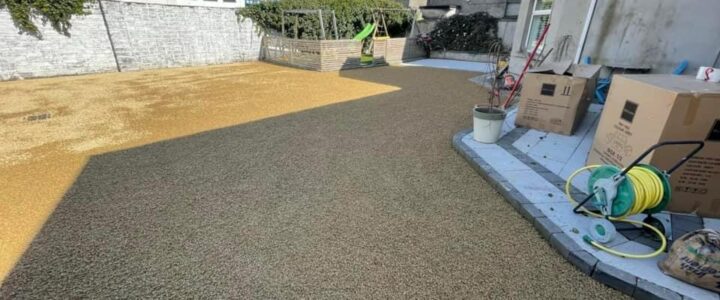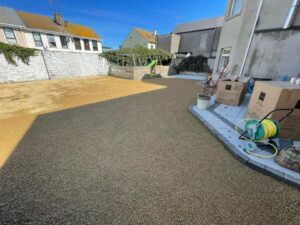Choosing the right driveway material is a crucial decision for any homeowner. Not only does it impact your home’s curb appeal, but it also determines the durability, maintenance, and overall value of your property. For Dublin homeowners, the debate often comes down to tar and chip vs asphalt driveways. Which one offers the best value for your Dublin home?
In this comprehensive guide, we’ll explore the features, benefits, and drawbacks of both options, helping you make an informed choice.
Exploring the Basics of Tar and Chip Driveways
What Is a Tar and Chip Driveway?
A tar and chip driveway, often referred to as a chip seal driveway, is a blend of hot liquid tar and stone chips. This combination creates a textured, natural-looking surface that is both functional and visually appealing. The process involves spreading a layer of hot tar, followed by stone chips compacted into the surface.
This type of driveway is especially favoured for its rustic charm, offering a look that blends seamlessly with natural surroundings.
Key Features of Tar and Chip
Tar and chip driveways are known for their unique characteristics, which set them apart from other materials:
- A textured, non-slip surface that provides excellent traction.
- Natural, muted tones that enhance rural or suburban aesthetics.
- A cost-effective alternative to asphalt or concrete.
Advantages of Tar and Chip Driveways
- Affordability: Tar and chip driveways are typically less expensive to install. This is primarily because the materials and installation process require fewer resources, making it an economical choice. On average, tar and chip driveways cost around €25 per square metre, meaning a 50 square metre driveway would cost approximately €1,250.
- Low Maintenance: With minimal upkeep, tar and chip driveways can remain functional and attractive for years.
- Traction in Wet Weather: The textured surface provides superior grip, which is especially useful during Dublin’s frequent rainy days.
- Customisable Appearance: Homeowners can choose from a variety of stone chip colours, allowing for a personalised look.
Potential Drawbacks
- Moderate Lifespan: While cost-effective, tar and chip driveways may not provide the longevity needed for high-traffic or harsh weather conditions. Regular upkeep, such as resurfacing, can help extend their usability.
- Stone Displacement: The loose stones on the surface can become dislodged over time, especially in areas with frequent vehicle traffic. Periodic top-ups are needed to maintain the driveway’s appearance and functionality.
- Best for Light Use: Tar and chip is better suited for light to moderate residential use. For areas with consistent heavy traffic, this material may wear down more quickly than alternatives.
Everything You Need to Know About Asphalt Driveways
What Is an Asphalt Driveway?
Asphalt driveways are constructed from a mixture of bitumen and aggregate (crushed stone, gravel, or sand). This combination is heated and poured onto a prepared base, creating a smooth, durable surface. Asphalt driveways are commonly used for their sleek, modern finish and ability to withstand heavy traffic.
Key Features of Asphalt
- A smooth, clean appearance that complements contemporary homes.
- High durability, capable of withstanding significant wear and tear.
- Flexible material that resists cracking in mild temperature fluctuations.
Advantages of Asphalt Driveways
- Longevity: Asphalt driveways are built to last, and when properly maintained, they can last up to 20 years.
- Ease of Maintenance: While periodic sealing is required, cracks can be repaired easily without replacing the entire surface.
- Professional Appearance: The smooth black finish offers a polished, modern look.
- Weather Resistance: Asphalt handles extreme weather conditions well, from heavy rains to frost.
Potential Drawbacks
- Higher Initial Cost: Asphalt driveways are more expensive than tar and chip. For a 50-square-metre driveway, homeowners can expect to pay between €3,000 and €5,000, compared to €1,250 for tar and chip.
- Maintenance Requirements: Regular sealing is necessary to maintain its appearance and durability.
- Vulnerability to Heat: Prolonged exposure to extreme heat can soften the material, leading to deformation.
Tar and Chip vs. Asphalt: Direct Comparison
Cost
For a 50 square metre driveway, tar and chip costs around €1,250, while asphalt costs between €3,000 and €5,000, meaning you could pay an additional €1,750 to €3,750 for asphalt. Tar and chip remains a cost-effective choice, but asphalt’s higher price reflects its durability and performance.
Durability and Longevity
Tar and Chip: Suitable for light to moderate use but less durable for heavy traffic or harsh weather conditions.
Asphalt: Lasts up to 20 years or more with proper maintenance, making it a better choice for high-traffic areas.
Aesthetics
Tar and Chip: Offers a rustic, textured appearance that blends well with natural surroundings.
Asphalt: Provides a sleek, modern finish that complements contemporary homes.
Maintenance
Tar and Chip: Requires occasional reapplication of stone chips to maintain its surface.
Asphalt: Needs regular sealing to prevent cracks and maintain its appearance.
Suitability for Dublin Homes
Dublin’s wet climate makes traction a priority, giving tar and chip an edge in this area. However, asphalt’s durability and weather resistance make it a reliable option for long-term use.
Tar and Chip vs. Asphalt Driveways: The Environmental Pros and Cons
Eco-Friendliness of Tar and Chip
Tar and chip driveways utilise natural materials, and their installation process consumes less energy. This makes them an environmentally friendly option for homeowners concerned about sustainability.
Eco-Friendliness of Asphalt
While asphalt is recyclable, its production has a higher carbon footprint due to the energy-intensive process of creating bitumen. However, advancements in technology are making asphalt more sustainable over time.
Which Is More Sustainable?
For eco-conscious homeowners, tar and chip may be the better choice due to its minimal environmental impact. However, the recyclability of asphalt adds to its appeal as a sustainable material.
Practical Driveway Considerations for Dublin Homeowners
- Driveway Size and Traffic: Consider the expected level of use when choosing a material. Tar and chip is ideal for light residential use, while asphalt suits larger or busier driveways.
- Local Regulations: Check for any restrictions or recommendations in your area regarding driveway materials.
- Contractor Expertise: Ensure you hire professional driveway pavers in Dublin with experience in tar and chip or asphalt installations to guarantee a high-quality finish.
Making the Right Choice: Which Is Best for You?
Both tar and chip and asphalt driveways have their strengths and weaknesses, and the right choice depends on your specific needs.
If you’re working within a tight budget and prefer a natural, rustic aesthetic, tar and chip driveways are an excellent option. They offer affordability, a non-slip surface, and low maintenance, making them ideal for light residential use.
On the other hand, if you’re looking for a sleek, modern finish and a driveway that can handle heavy traffic or last for decades, asphalt is the better choice. Its durability and minimal upkeep make it a popular option for urban or high-traffic properties.
Both tar and chip and asphalt driveways have their strengths and weaknesses, and the right choice depends on your specific needs.
In conclusion, deciding between tar and chip and asphalt driveways comes down to understanding what matters most to you as a homeowner. Whichever option you choose, working with an experienced driveway specialist is key to ensuring a high-quality result. A professional can help you navigate the decision-making process, assess your specific needs, and provide a driveway that enhances your home’s overall appeal.
Still deciding between tar and chip vs asphalt for your driveway? Call us now on 014851582 for expert advice and professional installation tailored to your needs. Upgrade your driveway with confidence—get started today!





